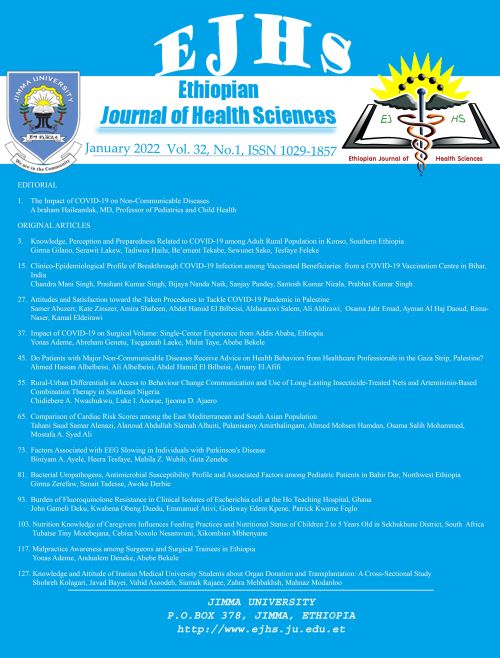Main Article Content
Do Patients with Major Non-Communicable Diseases Receive Advice on Health Behaviors from Healthcare Professionals in the Gaza Strip, Palestine?
Abstract
BACKGROUND: NCDs tend to be long-term and are caused by genetic, physiological, environmental, and behavioral factors. Currently, NCDs account for 71% of deaths globally. The current study aimed to explore whether patients with NCDs receive advice on health behaviors from healthcare professionals in the PHCs in
the Gaza Strip, Palestine.
METHODS: This research applied a cross-sectional survey design in five PHCs from October 2019 to December 2019, with 360 patients selected using a convenience sampling technique. A structured questionnaire on sociodemographic, history and patients’ views on receiving advice on health behaviors from health care professionals was developed and collected. Data were analyzed using descriptive analyses and a One-way ANOVA test through SPSS-v22.
RESULTS: The patients reported receiving advice as follows: in terms of regular physical activity (54.5% ±13.6), in terms of eating a heart-healthy diet (49.3% ±11.5), in terms of treatment adherence (86.1% ±8.1), and in terms of stop tobacco for smokers’ patients (43.9% ±16.8). Statistically significant differences were found between the five Gaza strip governorates in terms of regular physical activity, eating heart-healthy, and treatment adherence (P values <.05 for all).
CONCLUSION: Participants claimed that the vast majority of them had received advice from healthcare professionals regarding attending regular follow-up and treatment adherence. In contrast, participants reported receiving advice from health care professionals regarding regular physical activity, eating a healthy diet, and stopping tobacco are suboptimal. There is a need to develop a strategy to ensure that healthcare professionals are committed to providing advice on health behaviors.






